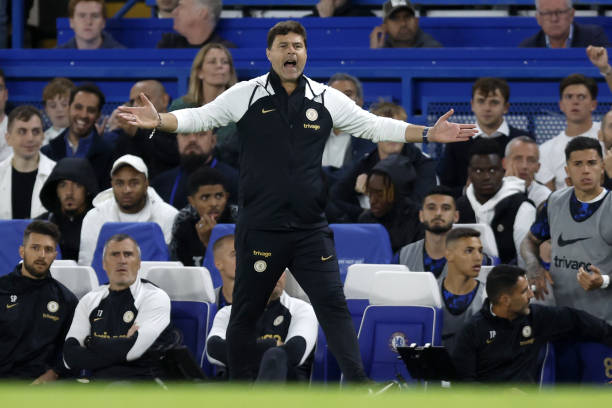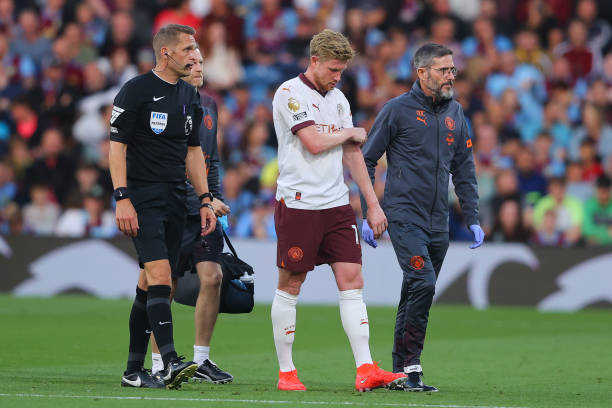Clearlake Capital made a clear (no pun intended) impact on the Premier League within months of taking over Chelsea Football Club. The new owners took little time to get acquainted with the league before splashing £47.5 million on Raheem Sterling.
A few days later, Chelsea acquired Kalidou Koulibaly from Napoli for £33m. The west London club wasn’t done there. Marc Cucurella joined for £56m and Wesley Fofana signed for £69.5m. Those weren’t the only players to join Chelsea in the summer of 2022, just the most notable.
After sacking manager Thomas Tuchel in the autumn and hiring Graham Potter as the German’s replacement, Chelsea’s owners enjoyed another big transfer window in January. The Blues were the equivalent of the drunk guy at the strip club with more money than he knew what to do with.
Chelsea signed Benoit Badiashile, Mykhailo Mudryk, and Noni Madueke along with a few other players for eye-watering prices. One of those other players happened to be the flavour of the minute, midfielder Enzo Fernandez, for a jaw-dropping £107m.
Is it time to re-think Premier League spending?
Clearlake Capital spent over £600m on players in just two transfer windows. The amount of money Chelsea spent had the rest of the league wondering how they could compete with the Blues. Even Manchester City blushed with the amount of money Chelsea spent on transfers.
The splurge on talent once again sparked the conversation about whether the Premier League needs a salary cap. While the idea of a salary cap has been kicked about for some time, it has only become a likely possibility due to the state of football finances. The Premier League is thriving and has money to burn. The rest of the world’s football leagues aren’t as flush with cash and are desperate for the Premier League’s spending to be curbed to compete with the English league.
The Premier League, and football in general, is unsustainable financially. Teams in the English top flight believe the money will continue rolling in, while Championship clubs are spending money like never before to get into the party. COVID-19 only exposed the money issues football had previously, making more people aware of the growing cracks in the facade.
Fair Game, an organisation that promotes sustainability in football, reported that 44 of the 85 clubs that filed financial returns for the 2019-20 season were technically insolvent. To calculate technical solvency, simply take a football club’s assets (including the stadium, training ground, and playing staff) and subtract the liabilities (including debt). A football club is technically insolvent if its liabilities are more than its assets. The Premier League had seven teams rank as technically insolvent for 2019-20: Aston Villa, Brighton, Bournemouth, Crystal Palace, Sheffield United, West Ham, and Wolverhampton Wanderers.
Could La Liga’s salary cap work for the Premier League?
La Liga’s salary cap, or wage restrictions, have been cited as a possible way to rein in the spending in the Premier League. La Liga sets a limit on the amount of money a club can spend by “calculating the club’s revenues and total expenditure from debt repayments to operational costs.” Some fans will see the spending limits set by La Liga as a good thing. Barcelona were restricted in their spending over the last few seasons due to the amount of money going out. However, Barcelona found ways around the wage restrictions by selling off various assets which may come back to haunt them down the line.
The restrictions set forth by La Liga don’t make the Spanish top flight any better to watch, however. The restrictions merely reinforce that Barcelona and Real Madrid are the two best teams. The quality in La Liga is low down the table, and due to the amount of money available for teams outside of the big two to spend, those clubs don’t get any better. Yet, the salary limits in La Liga do ensure clubs don’t spend themselves out of business.
Would a salary limit like La Liga’s work in the Premier League?
A La Liga salary limit could work in the Premier League, but the big clubs would benefit. The only way for a salary cap to work in the Premier League would be to set out a figure that all the clubs must abide by. A hard salary cap figure like in the NBA or NFL would ensure that the clubs didn’t spend over a set amount league wide. Of course, clubs would come up with creative ways to pay players and get around the rules. Teams have been getting around the wage rules since the days of amateurism in football.
Rather than a salary cap, the Premier League may need a transfer cap instead. A salary cap would have restricted Chelsea in some ways over the last two transfer windows. However, a transfer cap would have stopped them from spending more than £600m on new players.
A transfer cap would be a figure set out by the Premier League based on earnings, expenditures, and running costs. The figure would signify the amount of money a team has available to spend in a transfer window. The club would then figure out how to use its money. Perhaps this would be far fairer than a salary cap, as each team is limited in the amount of money they can pay on transfers rather than the amount of money they can pay in salaries.
Chelsea’s salaries aren’t necessarily the issue. The problem clubs had with Chelsea’s transfer spending was the amount of money paid for players. Of course, clubs may express their unhappiness toward Chelsea, but given the opportunity to spend the same amount of money, they would.
Why does the Premier League need a salary cap?
Imagine the Premier League is the Titanic. The Titanic was claimed to be the greatest ship ever built and completely unsinkable. Well, the Premier League is being considered the same, only in terms of being a professional football league.
The Premier League’s television rights income is worth over £10 billion. It is an incredible sum, and it is being driven by international audiences just as much as domestic fans. There seems to be a belief that the good times are only going to continue rolling along with more money coming into the competition. The problem is there is always an end, and one day the money will run out. The Titanic will sink.
Even the most optimistic person would concede that the Premier League’s success will end at some point. Yet, by the time that time comes, the football landscape could be very different. A European Super League, or (gasp!) a World Super League could be in play by the time the Premier League ship finally sinks.
FIFA is already trying to wrestle away the Premier League and Champions League’s popularity. The revamped FIFA Club World Cup will take place every four years and pit the “best clubs in the world” against each other.
If you are a fan of the Premier League, then there is nothing wrong with spending money on the best players in the world. The future of the competition and the leagues below it are at risk due to overspending. Nothing lasts forever, and scattergun spending could see the Premier League’s teams spend themselves out of business.

Must See
-


Champions League
/ 8 months agoChampions League – Matchday 2
Almost in the blink of an eye we reached the second day of the...
-


Premier League
/ 8 months agoThe bad start for Poch’s Chelsea
Since Todd Boehly’s arrival as club owner in the summer of 2022, Chelsea have...
-


Premier League
/ 8 months agoJadon Sancho’s feud with Erik Ten Hag continues
Manchester United winger Jadon Sancho’s time at Old Trafford has been torrid, to say...

